Zanesville Police Department graduates inaugural Citizens Police Academy class
Members of the inaugural class of the Zanesville Citizens Police Academy. Top: Mark Brown, Howard Stewart, Laura Tompkins, Monica Martinelli, Rhonda Heskett, Leslie Bryan, Annette Porter, Jeff Tilton, Melissa Best, Mark Falls, Mollie Crooks and Tony Coury. Bottom: Dan Vincent, Joey Osborn, Jessica Johnston, Cindy Cameron and Christine Holmes.
June 3, 2019
The Zanesville Police Department graduated its inaugural Citizens Police Academy class, sending the diverse group leaders back to their roles in the community with a deeper appreciation and understanding of law enforcement.
A concept trending across the country, Chief Tony Coury wanted to bring that experience and education to Zanesville.
“I thought it was a pretty cool concept, and a nice way to be transparent and show our citizens exactly what we are doing,” said Coury.
For the first class, Coury chose community leaders with a wide variety of backgrounds to take part in the inaugural program.
Participants included county commissioners, city councilmen, city administrators, non-profit leaders, business leaders and members of the media. Coury also invited those who represent voices that aren’t heard as often or loudly, such as leaders from ministries and churches in impoverished areas.
“It’s nice that we’re able to open our doors up and share our experiences and talk with just regular business people and members of the community,” said Coury. “I think it’s important that, especially this day and age, that transparency is one of the keys.”
Over the course of 10 weeks, the 15 who accepted their invites and committed three hours of their Thursday nights to the Citizens Police Academy were pushed out of their comfort zones to fully immerse themselves in the world of law enforcement.
Participants learned the laws, challenges and dangers associated with being a police officer by putting on the duty belt and putting themselves into action.
They were thrown into controlled scenarios such as traffic stops with potential threats, active shooter simulations, a special response team demonstration, K-9 unit demonstration and a taste of a what it’s like to be tased.
“Even through the simulations, I was scared to death,” said Melissa Best of Habitat for Humanity. “I knew I was not in jeopardy. I knew I was safe. I knew that I would not get hurt, but I was still frightened.”
Best recalls feeling uncomfortable the night the class took things outdoors to practice pulling over a vehicle in a parking lot.
Prior to leaving the classroom, students were primed with videos of traffic stops gone wrong.
Armed with a training gun that shoots soap pellets, Best stopped the vehicle and retrieved the driver’s license. When she brought it back to the cruiser, Coury told her when she returned to the pickup truck she’d be killed.
“Again, I knew it was pretend. It just really kind of stopped my heart, and I felt my blood pressure go up,” said Best. “I was just like, ‘Oh my gosh, I don’t want to go back up there,’ I think that’s what I said, because I don’t want to go back up. He said ‘You got to.’”
Commissioner Cindy Cameron could relate to the nerves Best felt during the simulation, but for her, it translated into empathy for the classmates about to experience what she did.
Cameron said that sense of comradery gave her a better understanding of how police officers look out for one another while on duty.
“We all felt like a team,” said Cameron.
That was exactly what Coury wanted the class to learn.
“One of the big things I talked about was taking everybody out of their comfort zone and taking them into the world of law enforcement. As I said at graduation, I think we held up our end of the bargain,” said Coury. “We made it fun, we made it enjoyable, we made people think, we may have scared some people at times, we laughed and some people may have cried. That kind of all goes with it in law enforcement.”
What was taught in class was brought home with the participants each week.
“Like (Zanesville High School principal) Laura [Tompkins] said, you didn’t sleep the night before [because] you’re excited, then the night you went home you didn’t sleep because of what you had done,” said Cameron.
Admittedly, not everyone who volunteered to take the class was eager to give up their Thursday evenings for 10 weeks straight, but it soon became something to look forward to each week.
“I ended up cancelling everything else and doing that,” said commissioner Mollie Crooks. “At the end of it, I just felt like I was a better person and a better citizen for having done that, and I mean, having an appreciation even more so for what they do everyday.”
By the time graduation came around, participants were reluctant to leave.
“I didn’t want it to end,” said Best. “Oh, I didn’t either,” added Cameron.
From the police perspective, Coury said the program was extremely successful.
“I think it was successful in the standpoint that our officers enjoyed it, and so they were willing to get out front and talk about brag about law enforcement and what we do. I believe that people of course that were in the class were educated,” said Coury. “They have a better understanding now of exactly what happens when a crime is committed and, you know, how [a crime] kind of walks through the judicial system, how the job can be dangerous at times to officers and decisions need to be made in a split second sometimes, and sometimes decisions are made over a course of days, hours or days. We have a legal team that stands behind us.”
Coury is already making plans for next year’s class.
*Editor’s note: In full transparency of potential bias, it is necessary to note the author of this article was a participant in the Zanesville Citizens Police Academy.

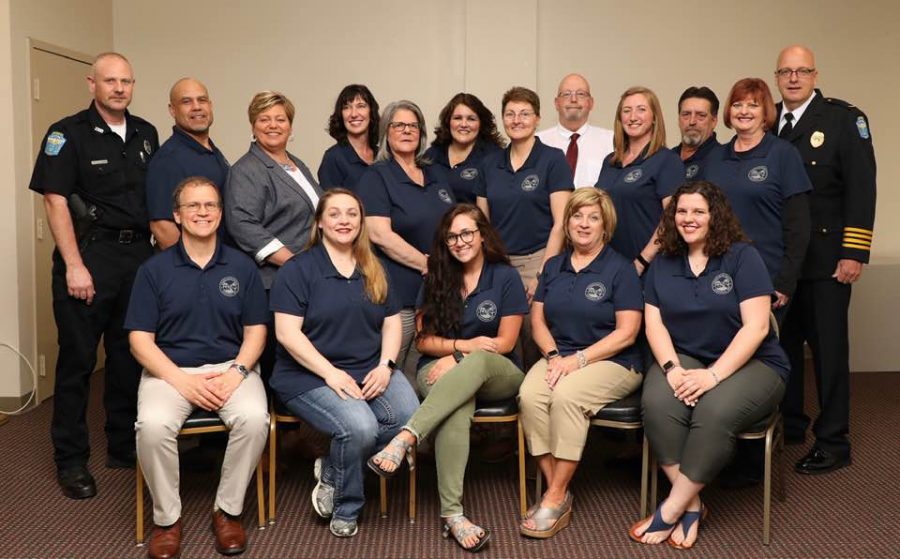



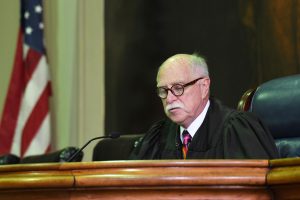




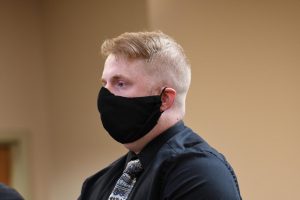


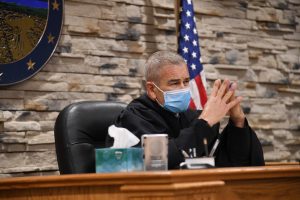
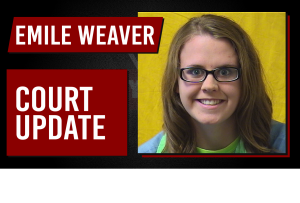
Roger T. thomas • Jun 4, 2019 at 6:29 pm
So, of all the lessons about being a Solid Citizen, did the Chief also explain to the class about the meaning of Qualifed Immuity?